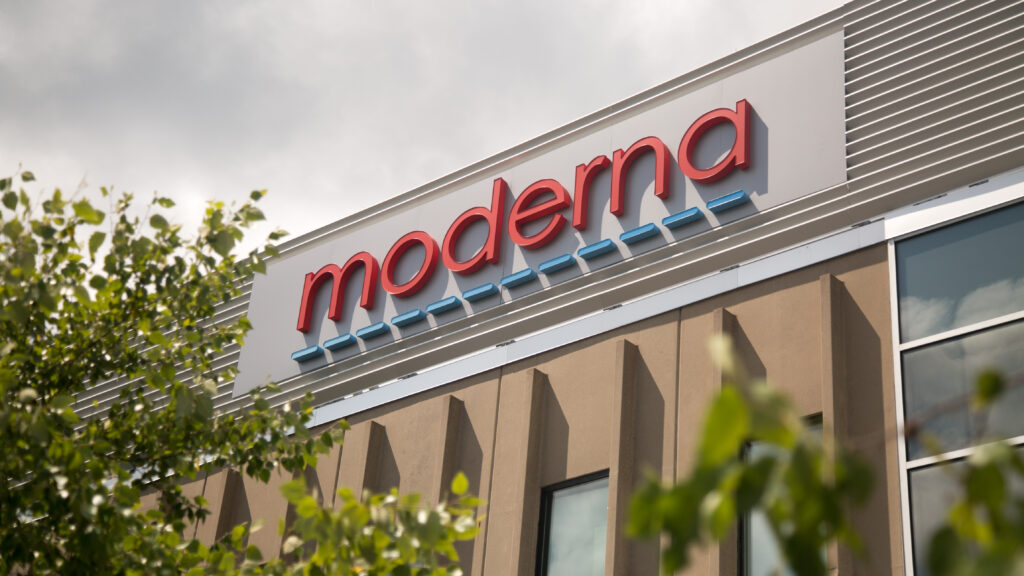Want to stay on top of the science and politics driving biotech today? Sign up to get our biotech newsletter in your inbox.
Good morning, we’re nearing the end of my second week writing this newsletter. I want to know what you think! Share your feedback in this survey if you haven’t already.
advertisement
And a plug that STAT has a great deal right now: you can get the first three months of a subscription for just $5.
The need-to-know this morning
Moderna hits some turbulence in gene-editing efforts
We learned yesterday about some hitches in Moderna’s gene-editing efforts: It’s ending a collaboration with a gene-editing startup and, as a source told STAT, the head of its genomics division has left.
The developments mark a turnaround from the company’s plans to invest in gene editing three years ago, when it was flush with cash from Covid vaccine sales. Moderna President Stephen Hogue told investors at the time, “This will be a completely new approach for Moderna and a dramatic expansion of our modality strategy.”
advertisement
The company’s technology had long seemed a good match for gene editing. To deliver CRISPR and other gene-editing systems into the body, researchers often encode the proteins as mRNA and encase it in a bubble of fat called a lipid nanoparticle — the same system Moderna used to deliver spike proteins for its coronavirus vaccines.
Read more from STAT’s Jason Mast on what this means for Moderna.
BridgeBio bids farewell to oncology
The biotech is spinning out its oncology subsidiary into a fully independent company, as it concentrates its resources on an anticipated launch of its pivotal heart drug.
The subsidiary, which is developing treatments for cancers with mutations in the KRAS gene, will become BridgeBio Oncology Therapeutics. It’s backed by $200 million in private financing led by Cormorant Asset Management and Omega Funds.
It’s an interesting development in BridgeBio’s unique business model. The biotech grew out of an idea of being a “hub-and-spoke” company, meaning it’s made up of several subsidiaries each working independently on different drugs. The goal is for the subsidiaries to share central resources while having the freedom and expertise to pursue their own research. But as BridgeBio develops more drugs that each require more spending, the business model has grown complicated.
Read more from me on BridgeBio’s plans and what the CEO told me about the the business model.
Novartis expands its radiopharma plans
Novartis, which already produces the leading radiopharmaceutical drug, is doubling down on the field. It’s paying $1 billion upfront and up to an additional $750 million if certain milestones are met to acquire startup Mariana Oncology.
Mariana is a three-year-old company developing medicines that drop radioactive isotopes on cancer cells, decimating them in a more potent way than traditional radiation treatment. It was founded by investors Atlas Venture, Access Biotechnology, and RA Capital Management.
The success of Novartis’ own radiopharmaceutical drug, Pluvicto, has set off a domino effect in the industry. Eli Lilly, AstraZeneca, and Bristol Myers Squibb have spent billions of dollars to acquire radiopharmaceutical startups.
Read more from STAT’s Allison DeAngelis on this new deal.
Promising results in a rare skeletal disease
A team of academic researchers reported that a gene therapy alleviated skeletal defects tied to a rare inherited disease called Hurler syndrome in a small trial.
This treatment, called OTL-203, is licensed to Orchard Therapeutics, which was recently acquired by Japanese drugmaker Kyowa Kirin.
People with the disease suffer from short stature, spinal defects, and extremely stiff joints, complications that greatly limit their quality of life. But in the nearly four-year study, children on the therapy grew to heights within average norms, and had far more flexible shoulder, hip, and knee joints than untreated children.
If the treatment is shown to be effective in longer studies, it’s possible it could offer patients more life-changing outcomes than bone marrow transplants, which are the current standard approach for Hurler syndrome.
Read more from STAT’s Andrew Joseph on these new results.
More reads
- Pasteurization inactivates H5N1 bird flu in milk, new FDA and academic studies confirm, STAT
- Lawmakers grill UnitedHealth CEO on Change cyberattack: ‘Your company let the country down’, STAT
- Lawmakers, as part of ‘lab leak’ Covid inquiry, press to bar EcoHealth from federal research funds, STAT
- Pfizer’s strong Vyndaqel sales draw attention to rare disease drug’s patent life, BioPharma Dive
- Boehringer puts a target on Humira, says pushing it off formularies is necessary, Endpoints

